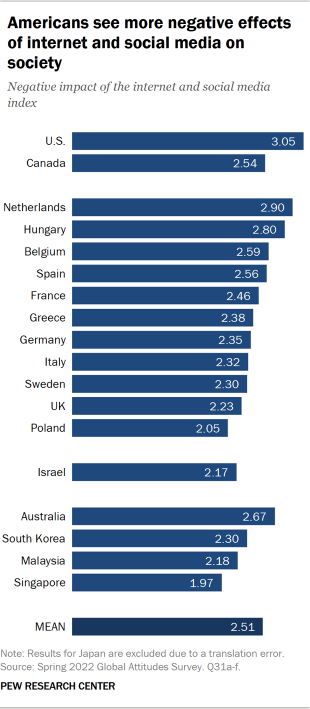
We created an additive scale to look at overall perceptions of the impact of the internet and social media on society. The index totals responses to six questions about the negative effect of the internet, making people: 1) less informed about current events in their country, 2) more divided in their political opinions, 3) less accepting of people from different backgrounds, 4) easier to manipulate with false information and rumors, 5) less informed about current events in other countries, and 6) less civil in the way they talk about politics.
Negative outcomes were coded as 1, while a positive or “no impact” response was coded as 0. Only respondents who provided a substantive answer to all six questions were included in the analysis (N = 21,727). If respondents said “don’t know” to any item, they were dropped from the index. Due to a translation error, respondents in Japan were not asked all six questions and were therefore not included in the index.
For each respondent, scores on the overall index can range from 0 – indicating the respondent sees none of the negative effects of the internet and social media measured – to 6 – meaning they see all negative effects measured. Therefore, higher scores overall demonstrate that respondents see more negative outcomes related to internet and social media use.
The overall average for all valid responses is 2.51, with country means ranging from a low of 1.97 in Singapore to a high of 3.05 in the U.S. This means that, on average, Americans see negative consequences on about half of the factors we measured. People in the Netherlands, Hungary and Australia also stand out for their relatively negative views of the impact of the internet and social media on their society.


